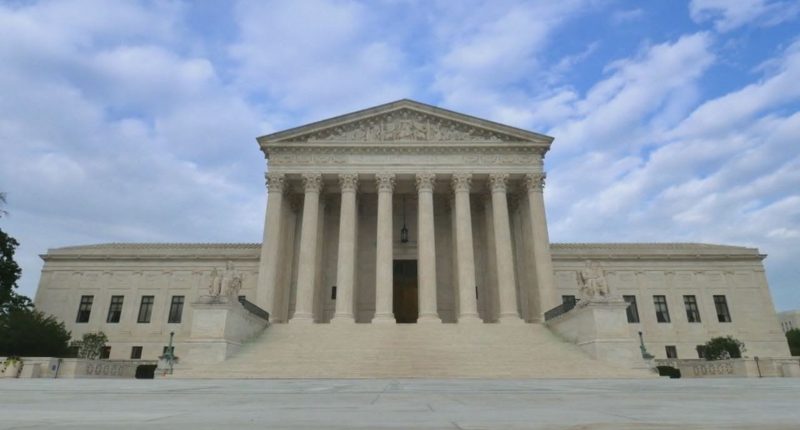Share this @internewscast.com
On Friday, the Supreme Court halted President Donald Trump’s attempt to proceed with deportations using the 1798 Alien Enemies Act for a group of immigrants in northern Texas, aligning with Venezuelans who feared their imminent deportation under this broad wartime law.
NOTE: The video is from a previous report.
This ruling represents a major setback for Trump, who aimed to expedite deportations using the act and bypass the usual review process required for removals. However, the ruling is temporary, and the legal dispute over the president’s use of the act continues in several federal courts nationwide.
The Supreme Court has returned the case to an appeals court to address the fundamental issues, such as the legality of the president’s actions and the appropriate notification for the migrants targeted by the law.
Two conservative justices – Clarence Thomas and Samuel Alito – publicly noted their dissent.
The court’s unsigned opinion was notably pointed about how the government was handling the removals and also how US District Judge James Hendrix had dealt with the case at an earlier stage.
The court pointed to another case that had reached it previously, that of the Maryland man, Kilmar Abrego Garcia, who was mistakenly removed to El Salvador. The court noted that the Trump administration has represented that it is “unable to provide for the return of an individual deported in error to a prison in El Salvador.”
Given that, the court said, “the detainees’ interests at stake are accordingly particularly weighty.”
The court added that the way the Trump administration was handling the removals did not “pass muster.” Specifically, the justices pointed to notice of only 24 hours that was “devoid of information about how to exercise due process rights to contest that removal.”
The Supreme Court sent the case back to the New Orleans-based 5th US Circuit Court of Appeals for further review, saying in its order that the appeals court erred in dismissing the detainees’ case.
“Today’s ruling effectively extends the temporary freeze that the justices put on Alien Enemies Act removals from the Northern District of Texas back on April 19,” said Steve Vladeck, CNN Supreme Court analyst and professor at Georgetown Law. “Because lower courts have blocked use of the act in every other district in which the president has sought to invoke it, that means it’s effectively pausing all removals under the act until the 5th Circuit – and, presumably, the Supreme Court itself – conclusively resolves whether they’re legal and how much process is due if so.”
The court also appeared to criticize how Hendrix, whom Trump nominated to the bench in his first term, had handled the case. Hendrix declined to halt the removals and argued in his opinion that the ACLU was attempting to rush the district court to act.
This is a developing story. Please check back for updates.
















